#palestinian thobe
Text
"The thobe is the bullet that will scatter into the faces of our enemies.
"Meet Samira, the Palestinians woman wielding her traditional dress as a weapon of strength and defiance." from The Tatreez Circle, 14/Apr/2024:
#tatreez#palestinian culture#palestinian art#palestinian thobe#palestinian heritage#palestine#free palestine#gaza#free gaza#from the river to the sea palestine will be free#i stand with palestine#rafah#save rafah#human rights#indigenous rights#indigenous#indigenous land
922 notes
·
View notes
Text

“To us, to liberate our country, to have dignity, to have respect, to have our mere human rights, is something as essential as life itself”
-Ghassan Kanafani
#CeasefireNow #FreePalestine
(Source)
Artist: Cincholy
Instagram | X/Twitter | Tiktok
Art reposted with permission. Please support Palestinian artists by engaging with this art on Instagram, Tiktok and Twitter
321 notes
·
View notes
Text
Clothes symbols: Palestinian thobe
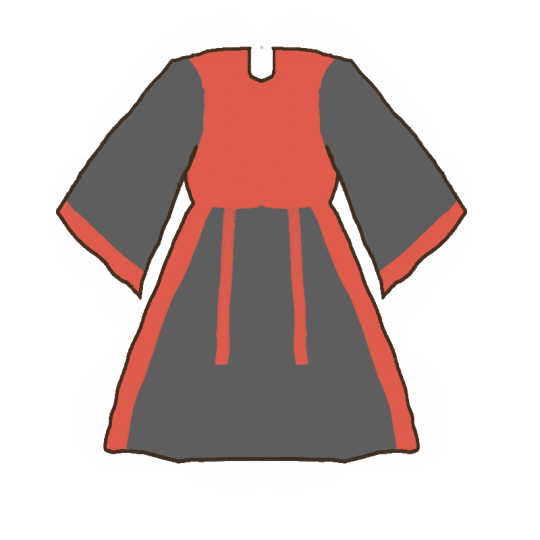
[ ID: Emoji of a black and red Palestinian thobe, with no details. /End ID ]
emoji/aac symbol of a palestinian thobe. might do a detailed version but wrist hurts and don't have energy
#kit.makes#thobe#palestinian thobe#palestinian culture#palestine#dress#clothes#aac symbol#emojis#emoji
14 notes
·
View notes
Text
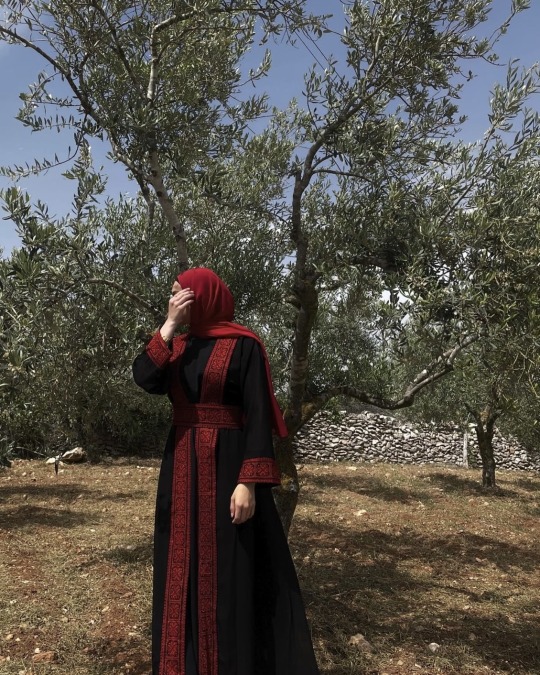
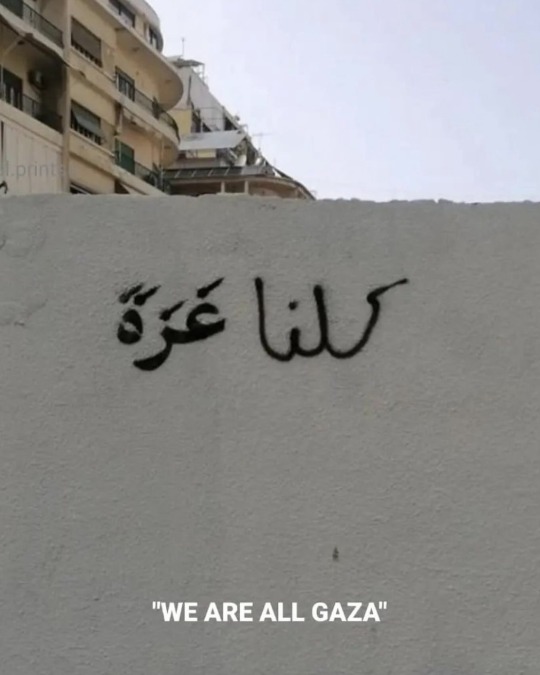
qahwahthoughts on ig || taken from my husband’s village, Betein.
#qahwahthoughts#vsco#photography#iphonography#palestine#betein#ramallah#gaza#we are all gaza#tatreez#thobe#palestinian tatreez#palestinian thobe#palestinian#palestinian resistance#from the river to the sea palestine will be free#falasteen#falastin#فلسطين#بيتين#رام الله#غزة
10 notes
·
View notes
Text
instagram
#free palestine#free gaza#culture is resistance#tatreez#palestine#Palestinian craft#palestinian resistance#thobe#palestinian thobe#Instagram
3 notes
·
View notes
Text
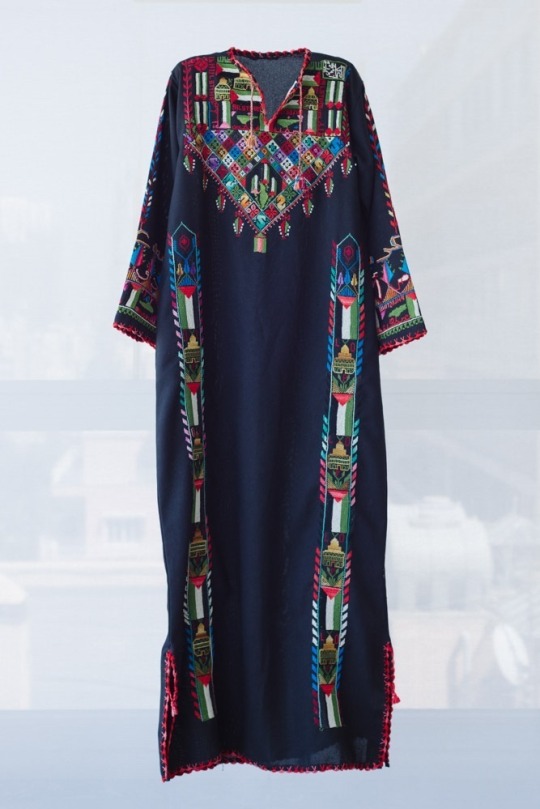
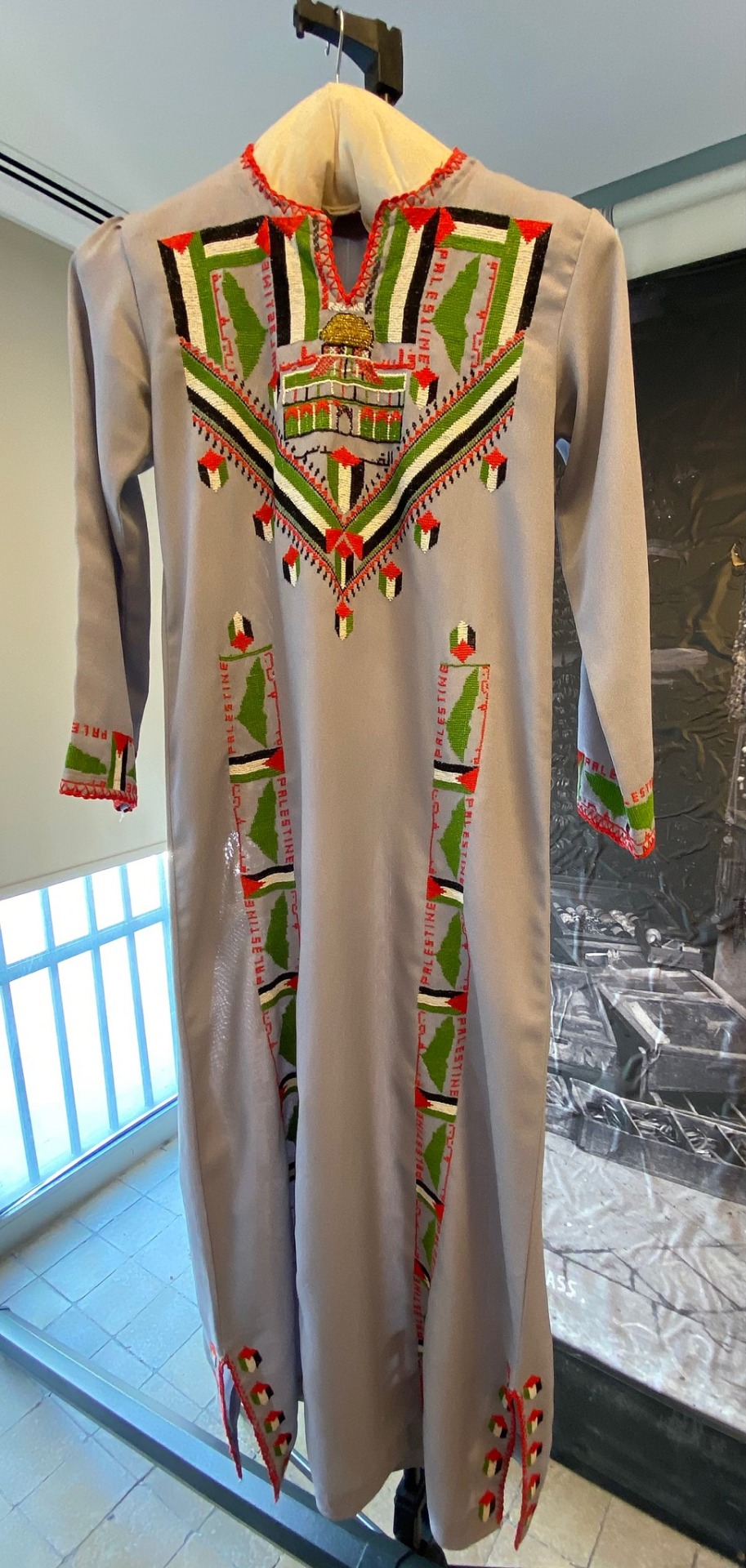
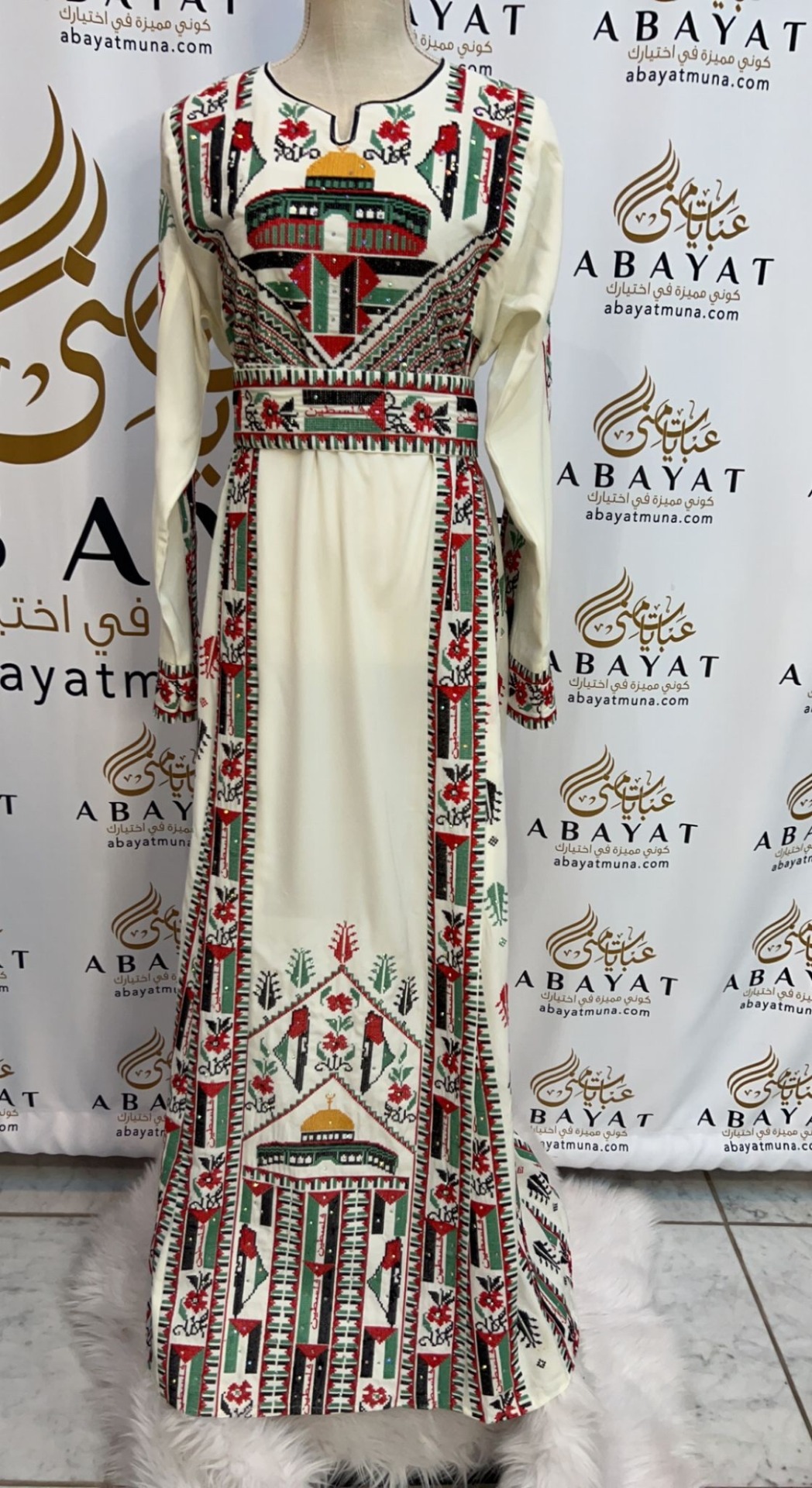
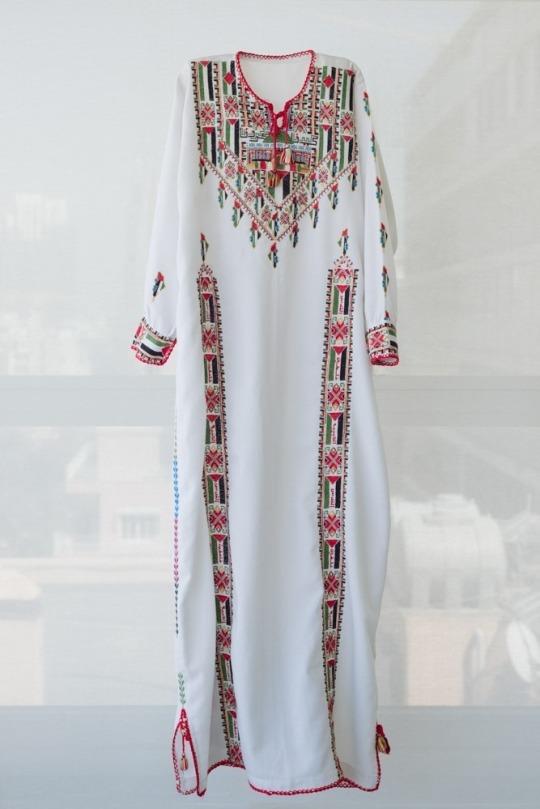
Historical and modern examples of the Intifada thobe. Israel banned the Palestinian flag during the first Intifada, so women would sew it into their dresses.
#palestine#my post#thobe#intifada#free palestine#palestinian culture#folk dress#embroidery#traditional clothing
2K notes
·
View notes
Text
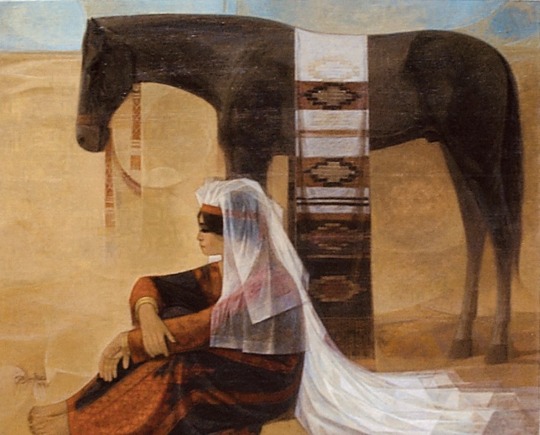
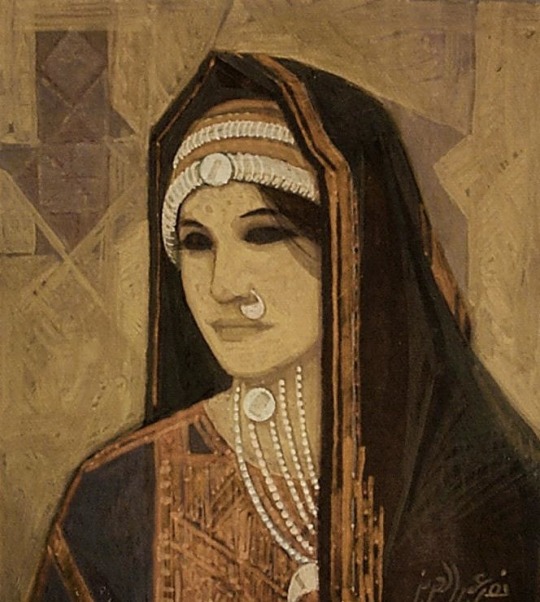


Nasr Abel Aziz Eleyan (1941) - Palestinian figurative painter whose individual style is concerned with cultural Palestinian traditions. His paintings depict the rural life of Palestinian farmers and the traditional Palestinian way of life.
#Nasr Abdel Aziz Eleyan#palestine#west asia#middle east#levant#asia#palestinian culture#traditional clothing#traditional jewelry#thobe#folk clothing#fellaheen#Palestinian art
6K notes
·
View notes
Text

queen myriah nymeros martell, newly crowned, at the coronation of her husband, king daeron ii. 184 AC.
visenya and rhaenys, alyssa velaryon, the six wives of maegor, alysanne, aemma arryn, alicent hightower and rhaenyra i, helaena, jaehaera, daenaera velaryon, daena the defiant, naerys

#really REALLY proud of these colors. at coronations esp of husbands i imagine queens go full targ but considering the importance of—#dorne joining the 7k i thought martell colors would be appropriate.#it was really difficult to find clothing of al andalus (islamic spain) which grrm has said inspired dorne#however i could find traditional palestinian clothing and palestine was also listed as inspiration so that’s what i did.#imo thobe-inspired pieces are traditional rhoynish ‘martell’ clothing whereas everyday and other areas/houses#have various inspiration. anyways! real proud of this#mine#my art#procreate art#artists on tumblr#digital art#procreate#asoiaf#valyrianscrolls#a song of ice and fire#myriah martell#queen myriah martell#myriah nymeros martell#queen myriah nymeros martel#house martell#house nymeros martell#dorne
695 notes
·
View notes
Text
I haven’t drawn anything in so long outside of commissions but I think Asma in a thobe would heal me. At least somewhat
55 notes
·
View notes
Text
Clothes symbols: Palestinian thobe

[ ID: Emoji of a black and red Palestinian thobe with yellow, dark red and light red embroidery. /End ID ]
emoji/aac symbol of a palestinian thobe, now with details.
#kit.makes#thobe#palestinian thobe#palestinian culture#palestine#dress#clothes#aac symbol#emoji#emojis
9 notes
·
View notes
Text

Golden brown, texture like sun
#so torn between leaving it like this and naking it hyper detailed#art#painting#traditional art#acrylpainting#woman#sunset#shes palestinian fyi#artists on tumblr#thobe
55 notes
·
View notes
Text

With the thobe, Palestinian women continue standing up against Israel with elegance and style!
🇵🇸
#history#thobe#palestine#traditional dress#womens history#palestinian culture#dress#traditional wear#femininity#intifada#feminine energy#feminine history#womens protest#palestinian history#traditional clothing#clothing#dress day#fashion history#feminine#free palestine#middle east#beautiful#womens clothing#fashion#palestinian femininity#nickys facts
161 notes
·
View notes
Text
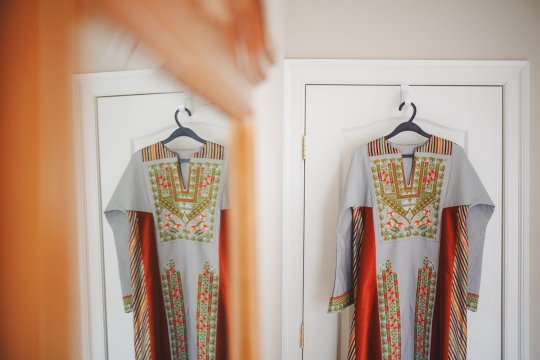
Lina's first handmade thobe hung on the back of the door as she got ready to wear it to her Katib Kitaab (Islamic wedding ceremony) on Sept. 10, 2022.
All the links you may need (flodesk.com)
10 notes
·
View notes
Photo
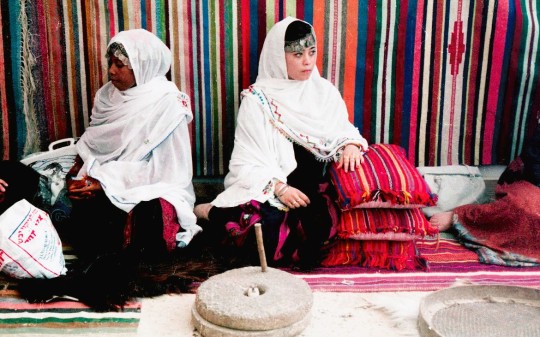
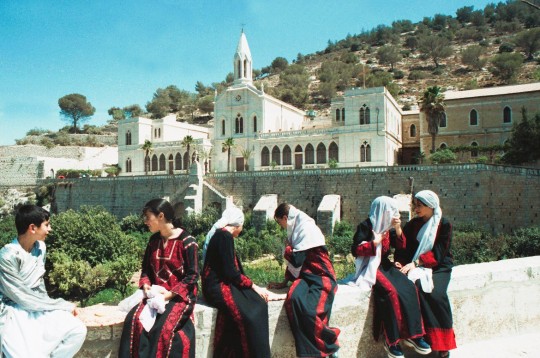
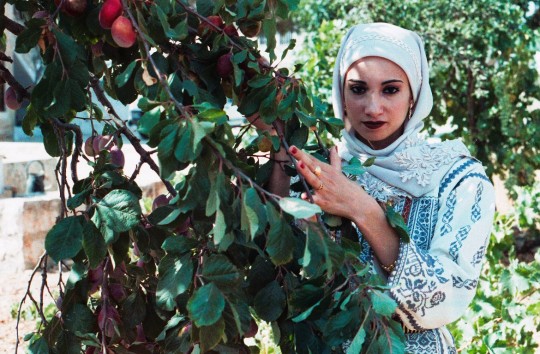
Palestinian women and dresses - Yousef al-Qutob (Photographer and journalist at the Palestinian News & Information Agency - WAFA)
#palestine#west asia#asia#middle east#levant#palestinian culture#1900s#vintage photography#thobe#traditional clothing#traditional jewelry
5K notes
·
View notes
Audio
(The Sports Courier - TSC News) TSC News TV host Fred Richani interviews Palestinian Tatreez (embroidery) artist Lina Barkawa about founding Lina's Thobe, the motifs behind the artform, the importance of preserving her culture, mental health, how we all can support the community, her activism, and how she is coping through these tragic times. Special thanks for Seema Gulati for booking this interview.
#SoundCloud#music#The Sports Courier - TSC News#Podcast#Tatreez#Palestinian Art#Embroidery#tsc news#lina's thobe#thobe#tatreez art#tsc gaming enmt#fred richani#richani#lina barkawi
4 notes
·
View notes
Text
A pro-Palestine Jew on tiktok asked those of us who were raised pro-Israel, what got us to change our minds on Palestine. I made a video to answer (with my voice, not my face), and a few people watched it and found some value in it. I'm putting this here too. I communicate through text better than voice.
So I feel repetitive for saying this at this point, but I grew up in the West Bank settlements. I wrote this post to give an example of the extent to which Palestinians are dehumanized there.
Where I live now, I meet Palestinians in day to day life. Israeli Arab citizens living their lives. In the West Bank, it was nothing like that. Over there, I only saw them through the electric fence, and the hostility between us and Palestinians was tangible.
When you're a child being brought into the situation, you don't experience the context, you don't experience the history, you don't know why they're hostile to you. You just feel "these people hate me, they don't want me to exist." And that bubble was my reality. So when I was taught in school that everything we did was in self defense, that our military is special and uniquely ethical because it's the only defensive military in the world - that made sense to me. It slotted neatly into the reality I knew.
One of the first things to burst the bubble for me was when I spoke to an old Israeli man and he was talking about his trauma from battle. I don't remember what he said, but it hit me wrong. It conflicted with the history as I understood it. So I was a bit desperate to make it make sense again, and I said, "But everything we did was in self defense, right?"
He kinda looked at me, couldn't understand at all why I was upset, and he went, "We destroyed whole villages. Of course we did. It was war, that's what you do."
And that casual "of course" stuck with me. I had to look into it more.
I couldn't look at more accurate history, and not at accounts by Palestinians, I was too primed against these sources to trust them. The community I grew up in had an anti-intellectual element to it where scholars weren't trusted about things like this.
So what really solidified this for me, was seeing Palestinian culture.
Because part of the story that Israel tells us to justify everything, is that Palestinians are not a distinct group of people, they're just Arabs. They belong to the nations around us. They insist on being here because they want to deny us a homeland. The Palestinian identity exists to hurt us. This, because the idea of displacing them and taking over their lands doesn't sound like stealing, if this was never theirs and they're only pretending because they want to deprive us.
But then foods, dances, clothing, embroidery, the Palestinian dialect. These things are history. They don't pop into existence just because you hate Jews and they're trying to move here. How gorgeous is the Palestinian thobe? How stunning is tatreez in general? And when I saw specific patterns belonging to different regions of Palestine?
All of these painted for me a rich shared life of a group of people, and countered the narrative that the Palestininian identity was fabricated to hurt us. It taught me that, whatever we call them, whatever they call themselves, they have a history in this land, they have a right to it, they have a connection to it that we can't override with our own.
I started having conversations with leftist friends. Confronting the fact that the borders of the occupied territories are arbitrary and every Israeli city was taken from them. In one of those conversations, I was encouraged to rethink how I imagine peace.
This also goes back to schooling. Because they drilled into us, we're the ones who want peace, they're the ones who keep fighting, they're just so dedicated to death and killing and they won't leave us alone.
In high school, we had a stadium event with a speaker who was telling us about a person who defected from Hamas, converted to Christianity and became a Shin Bet agent. Pretty sure you can read this in the book "Son of Hamas." A lot of my friends read the book, I didn't read it, I only know what I was told in that lecture. I guess they couldn't risk us missing out on the indoctrination if we chose not to read it.
One of the things they told us was how he thought, we've been fighting with them for so long, Israelis must have a culture around the glorification of violence. And he looked for that in music. He looked for songs about war. And for a while he just couldn't find any, but when he did, he translated it more fully, and he found out the song was about an end to wars. And this, according to the story as I was told it, was one of the things that convinced him. If you know know the current trending Israeli "war anthem," you know this flimsy reasoning doesn't work.
Back then, my friend encouraged me to think more critically about how we as Israelis envision peace, as the absence of resistance. And how self-centered it is. They can be suffering under our occupation, but as long as it doesn't reach us, that's called peace. So of course we want it and they don't.
Unless we're willing to work to change the situation entirely, our calls for peace are just "please stop fighting back against the harm we cause you."
In this video, Shlomo Yitzchak shares how he changed his mind. His story is much more interesting than mine, and he's much more eloquent telling it. He mentions how he was taught to fear Palestinians. An automatic thought, "If I go with you, you'll kill me." I was taught this too. I was taught that, if I'm in a taxi, I should be looking at the driver's name. And if that name is Arab, I should watch the road and the route he's taking, to be prepared in case he wants to take me somewhere to kill me. Just a random person trying to work. For years it stayed a habit, I'd automatically look at the driver's name. Even after knowing that I want to align myself with liberation, justice, and equality. It was a process of unlearning.
On October, not long after the current escalation of violence, I had to take a taxi again. A Jewish driver stopped and told me he'll take me, "so an Arab doesn't get you." Israeli Jews are so comfortable saying things like this to each other. My neighbors discussed a Palestinian employee, with one saying "We should tell him not to come anymore, that we want to hire a Jew." The second answered, "No, he'll say it's discrimination," like it would be so ridiculous of him. And the first just shrugged, "So we don't have to tell him why." They didn't go through with it, but they were so casual about this conversation.
In the Torah, we're told to treat those who are foreign to us well, because we know what it's like to be the foreigner. Fighting back against oppression is the natural human thing to do. We know it because we lived it. And as soon as I looked at things from this angle, it wasn't really a choice of what to support.
#riki babbles#I had this in my drafts for ages and I was like 'not the time' but a friend encouraged me to share so here it is#palestine
25K notes
·
View notes